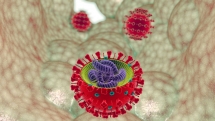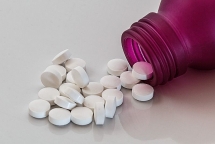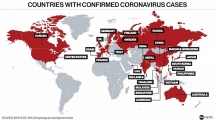Harvard Medical: Q&A on coronavirus
| A flu drug shows potential to treat coronavirus | |
| Some drugs that could treat coronavirus | |
| Some possible confusions about COVID-19 |
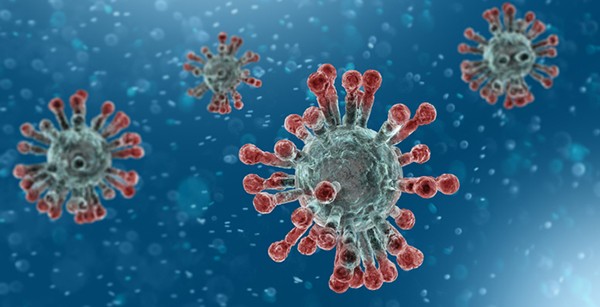 |
What should and shouldn't I do during this time to avoid exposure to and spread of this coronavirus? For example, what steps should I take if I need to go shopping for food and staples? What about eating at restaurants, ordering takeout, going to the gym or swimming in a public pool?
The answer to all of the above is that it is critical that everyone begin intensive social distancing immediately. As much as possible, limit contact with people outside your family.
If you need to get food, staples, medications or healthcare, try to stay at least six feet away from others, and wash your hands thoroughly after the trip, avoiding contact with your face and mouth throughout. Prepare your own food rather than going to a restaurant or even getting takeout. It's best to avoid the gym; but if you do go, be sure to wipe down anything you are about to touch, and once more after you use the equipment. Again try to keep a distance of 6 feet or more from others. Since the virus won't survive in properly treated pool water, swimming should be okay as long as you avoid close contact with other people.
Here are some other things to avoid: playdates, parties, sleepovers, having friends or family over for meals or visits, and going to coffee shops — essentially any nonessential activity that involves close contact with others.
What can I do when social distancing?
Try to look at this period of social distancing as an opportunity to get to things you've been meaning to do.
Though you shouldn't go to the gym right now, that doesn't mean you can't exercise. Take long walks or run outside (do your best to maintain at least six feet between you and non-family members when you're outside). Do some yoga or other indoor exercise routines when the weather isn't cooperating.
Kids need exercise too, so try to get them outside every day for walks or a backyard family soccer game (remember, this isn't the time to invite the neighborhood kids over to play). Avoid public playground structures, which aren't cleaned regularly and can spread the virus.
Pull out board games that are gathering dust on your shelves. Have family movie nights. Catch up on books you've been meaning to read, or do a family read-a-loud every evening.
It's important to stay connected even though we should not do so in person. Keep in touch virtually through phone calls, Skype, video and other social media. Enjoy a leisurely chat with an old friend you've been meaning to call.
If all else fails, go to bed early and get some extra sleep!
| How deadly is COVID-19? Regarding the fatality rate, it appears that the risk of death with the pandemic coronavirus infection (commonly estimated at 3% to 4%) is less than it was for SARS (approximately 11%) and MERS (about 35%), but may be higher than the risk from seasonal flu (which averages about 0.1%). What we do know so far is the risk of death very much depends on your age and your overall health. Children appear to be at very low risk of severe disease and death. Older adults and those with chronic diseases such as diabetes, heart disease, or lung disease have a higher chance of developing complications like pneumonia, which could be deadly. |
What can I do to protect myself and others from COVID-19?
The following actions help prevent the spread of COVID-19, as well as other coronaviruses and influenza:
- Avoid close contact with people who are sick.
- Avoid touching your eyes, nose, and mouth.
- Stay home when you are sick.
- Cover your cough or sneeze with a tissue, then throw the tissue in the trash.
- Clean and disinfect frequently touched objects and surfaces using a regular household cleaning spray or wipe.
- Wash your hands often with soap and water.
What do I need to know about washing my hands effectively?
Wash your hands often with soap and water for at least 20 seconds, especially after going to the bathroom; before eating; and after blowing your nose, coughing, or sneezing.
- If soap and water are not readily available, use an alcohol-based hand sanitizer with at least 60% alcohol, covering all surfaces of your hands and rubbing them together until they feel dry.
- Always wash hands with soap and water if hands are visibly dirty.
- The CDC's handwashing website has detailed instructions and a video about effective handwashing procedures.
| Should I wear a face mask? Follow public health recommendations where you live. As of February 26, 2020, face masks are not recommended for the general public in the US. Some health facilities require people to wear a mask under certain circumstances. If you have respiratory symptoms like coughing or sneezing, experts recommend wearing a mask to protect others. This may help contain droplets containing any type of virus, including the flu, and protect anyone within three to six feet of the infected person. |
Is it safe to travel by airplane?
Stay current on travel advisories from regulatory agencies. This is a rapidly changing situation.
Anyone who has a fever and respiratory symptoms should not fly if at all possible. Even if a person has symptoms that feel like just a cold, he or she should wear a mask on an airplane.
Is there a vaccine available?
No vaccine is available, although scientists will be starting human testing on a vaccine very soon. However, it may be a year or more before we even know if we have a vaccine that works.
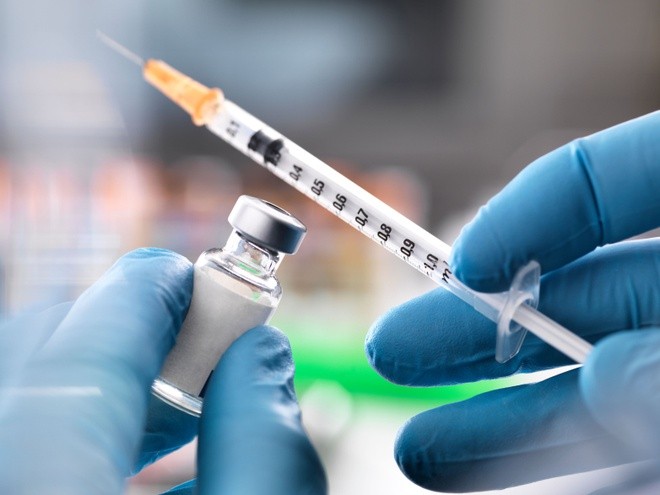 |
What can I do to keep my immune system strong?
Your immune system is your body's defense system. When a harmful invader — like a cold or flu virus, or the coronavirus that causes COVID-19 — gets into your body, your immune system mounts an attack. Known as an immune response, this attack is a sequence of events that involves various cells and unfolds over time.
Following general health guidelines is the best step you can take toward keeping your immune system strong and healthy. Every part of your body, including your immune system, functions better when protected from environmental assaults and bolstered by healthy-living strategies such as these:
- Don't smoke.
- Eat a diet high in fruits, vegetables, and whole grains.
- Take a multivitamin if you suspect that you may not be getting all the nutrients you need through your diet.
- Exercise regularly.
- Maintain a healthy weight.
- Control your stress level.
- Control your blood pressure.
- If you drink alcohol, drink only in moderation (no more than one to two drinks a day for men, no more than one a day for women).
- Get enough sleep.
- Take steps to avoid infection, such as washing your hands frequently and trying not to touch your hands to your face, since harmful germs can enter through your eyes, nose, and mouth..
What treatments are available to treat coronavirus?
Currently there is no specific antiviral treatment for COVID-19. However, similar to treatment of any viral infection, these measures can help:
- While you don't need to stay in bed, you should get plenty of rest.
- Stay well hydrated.
- To reduce fever and ease aches and pains, ake acetaminophen. Be sure to follow directions. If you are taking any combination cold or flu medicine, keep track of all the ingredients and the doses. For acetaminophen, the total daily dose from all products should not exceed 3,000 milligrams.
 | Vietnamese American becomes new director for Harvard University Health Service Professor and physician Giang T. Nguyen, a Vietnamese American, has been appointed as director of Harvard University Health Service, effective this November. |
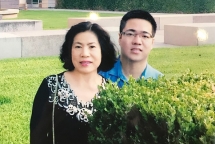 | Homeless boy and a Harvard University degree (VNF) - With a shrunken limb and the other hand having only two fingers, Son began the journey of a homeless child who could not ... |
 | Harvard-trained Vietnamese professor teaches kindergarten math in home country A Vietnamese math professor who earned his doctorate at Harvard University has found joy in educating children in his home country. |
Recommended
 World
World
Pakistan NCRC report explores emerging child rights issues
 World
World
"India has right to defend herself against terror," says German Foreign Minister, endorses Op Sindoor
 World
World
‘We stand with India’: Japan, UAE back New Delhi over its global outreach against terror
 World
World
'Action Was Entirely Justifiable': Former US NSA John Bolton Backs India's Right After Pahalgam Attack
 World
World
US, China Conclude Trade Talks with Positive Outcome
 World
World
Nifty, Sensex jumped more than 2% in opening as India-Pakistan tensions ease
 World
World
Easing of US-China Tariffs: Markets React Positively, Experts Remain Cautious
 World
World

